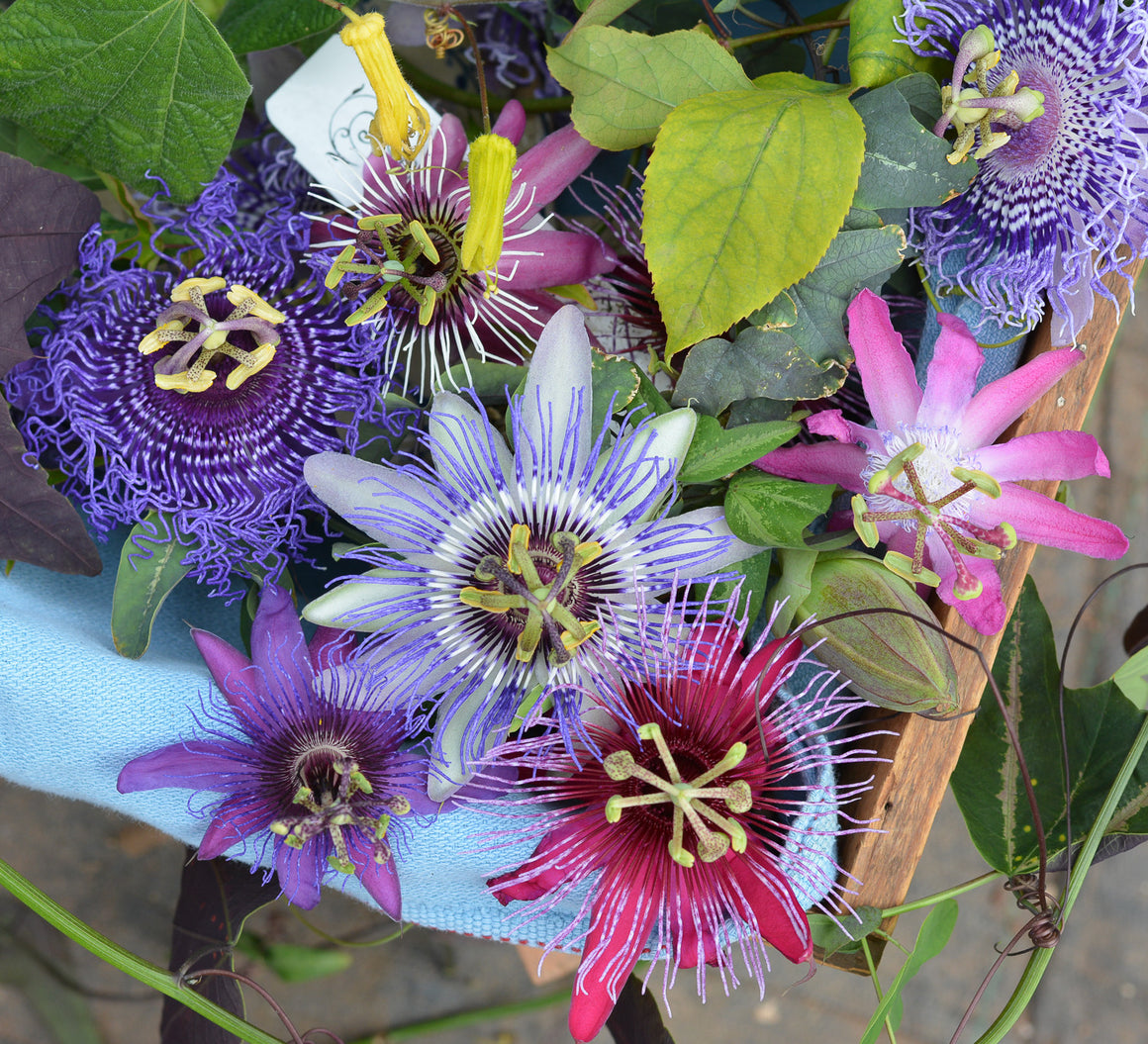Passion flowers are beautiful and exotic vines that can add a tropical touch to your garden. However, they can be a bit finicky to care for. Here are some tips on how to keep your passion flower healthy and thriving.
Choosing the Right Location
Passion flowers prefer full sun to partial shade. They need at least six hours of sunlight per day to bloom well. If you live in a hot climate, you may need to provide some afternoon shade to protect your plant from the intense heat.
Soil Requirements
Passion flowers prefer well-drained soil. They don’t like to sit in soggy soil, so make sure your planting location has good drainage. You can improve drainage by adding compost or other organic matter to the soil.
Watering Your Passion Flower
Water your passion flower deeply and regularly, especially during hot, dry weather. However, avoid overwatering, as this can lead to root rot. Let the top inch of soil dry out between waterings.
Fertilizing Your Passion Flower

Passion flowers are heavy feeders. Fertilize them every two weeks during the growing season with a balanced liquid fertilizer. You can also use a slow-release fertilizer, but you will need to apply it more frequently.
Pruning Your Passion Flower
Pruning your passion flower can help to keep it healthy and encourage more blooms. Prune your plant in late winter or early spring. Remove any dead or damaged branches. You can also trim back any overgrown branches to shape your plant.
Protecting Your Passion Flower from Pests and Diseases
Passion flowers are susceptible to a number of pests and diseases. Here are some tips on how to protect your plant:
Aphids: Aphids are small, soft-bodied insects that can damage your plant. You can control aphids by spraying them with a strong jet of water or by using insecticidal soap.
Overwintering Your Passion Flower

If you live in a cold climate, you will need to protect your passion flower from the cold. You can do this by bringing your plant indoors or by covering it with a frost blanket. If you bring your plant indoors, be sure to place it in a sunny location.
Growing Passion Flowers from Seed
Growing passion flowers from seed can be a rewarding experience. Here are some tips on how to grow passion flowers from seed:
Sowing the Seeds
Start your seeds indoors in late winter or early spring.
Germination
Passion flower seeds can take several weeks to germinate.
Buying Passion Flower Plants

If you don’t want to grow your passion flower from seed, you can purchase a mature plant from a nursery or garden center. When choosing a plant, look for one that is healthy and free of pests and diseases.
Conclusion
Passion flowers are beautiful and exotic vines that can add a tropical touch to your garden. With proper care, they can thrive in a variety of climates. By following the tips in this article, you can enjoy the beauty of your passion flower for years to come.
